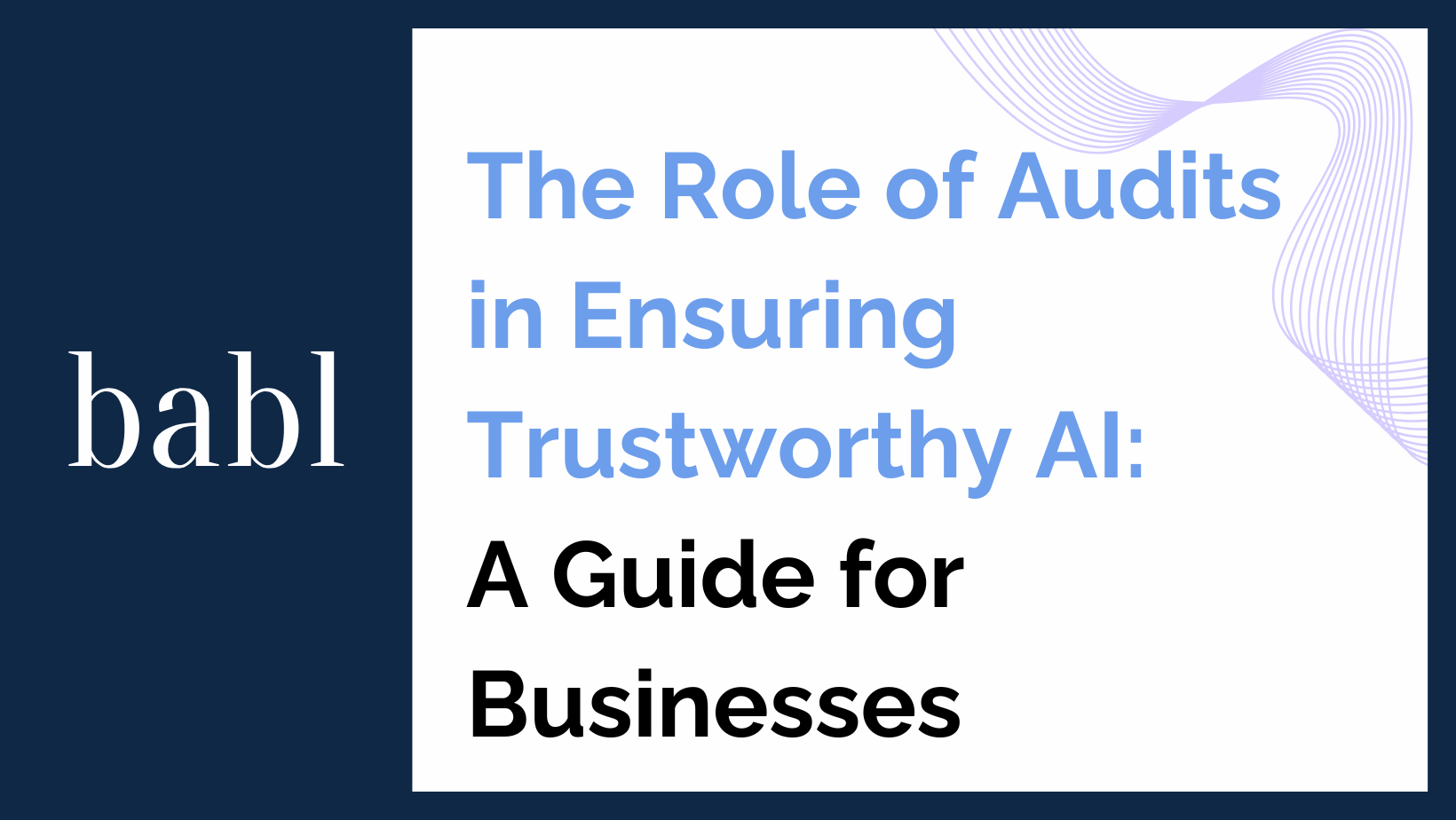In an era where artificial intelligence (AI) is becoming integral to business operations, the importance of trust in these systems cannot be overstated. As AI systems increasingly influence decision-making processes, businesses must ensure these systems are trustworthy, fair, and compliant with ethical standards. One of the most effective ways to achieve this is through rigorous audits. This blog post explores the role of audits in ensuring trustworthy AI, outlining the audit process, key areas of focus, and the benefits for organizations.
The Importance of AI Audits
AI audits are essential for businesses to maintain transparency and accountability in their AI systems. These audits help identify and mitigate risks associated with bias, data privacy, and compliance with regulatory standards. By conducting regular audits, businesses can ensure their AI systems operate as intended and do not inadvertently harm or discriminate against any group of people.
Understanding the AI Audit Process
The AI audit process involves a systematic evaluation of an AI system’s components, from data collection and processing to model training and deployment. Here are the key stages of a typical AI audit:
- Pre-Audit Planning
-
- Objective Setting: Define the audit’s scope and objectives. This may include evaluating compliance with regulations, assessing bias, or ensuring data privacy.
-
- Assemble an Audit Team: Include experts in AI, ethics, data security, and relevant legal frameworks.
-
- Data Collection: Gather all relevant documentation, including data sources, algorithm descriptions, and deployment protocols.
- Assessment and Analysis
-
- Data Integrity and Privacy: Assess data collection methods to ensure they comply with privacy laws and that data is accurate and secure.
-
- Algorithmic Fairness: Evaluate the AI system for biases, especially those related to race, gender, and other protected characteristics.
-
- Performance Metrics: Examine the system’s performance metrics to ensure they align with the intended outcomes and do not inadvertently cause harm.
- Reporting and Recommendations
-
- Audit Findings: Summarize the audit findings, highlighting areas of concern and compliance.
-
- Actionable Recommendations: Provide detailed recommendations for addressing any identified issues, including bias mitigation strategies and enhancements to data privacy measures.
-
- Continuous Monitoring: Suggest mechanisms for ongoing monitoring and periodic re-audits to maintain system integrity over time.
Key Areas of Focus in AI Audits
- Data Quality and Privacy
Ensuring the quality and accuracy of data used in AI models is crucial. Poor data quality can lead to biased outcomes and incorrect decisions. Audits should also ensure that data collection practices comply with privacy laws such as GDPR or CCPA, protecting sensitive personal information from misuse.
- Algorithmic Transparency and Accountability
Auditors should assess whether the algorithms used are transparent and understandable. This includes reviewing the explainability of the AI model’s decisions, which is crucial for trust-building, especially when AI systems are used in sensitive areas like healthcare or finance.
- Bias and Fairness
Identifying and mitigating bias is a central concern in AI audits. This involves examining the training data and model outputs to detect any disparities in treatment or outcomes for different demographic groups. Auditors should recommend strategies to address and prevent biases, ensuring the AI system operates fairly.
Benefits of Conducting AI Audits
- Building Trust with Stakeholders
AI audits help build trust with customers, employees, and investors by demonstrating a commitment to ethical practices and transparency. This trust is crucial for maintaining a positive brand reputation and ensuring long-term business success.
- Regulatory Compliance
Regular audits help businesses comply with existing regulations and prepare for future legislative changes. This proactive approach reduces the risk of legal penalties and ensures that AI systems are aligned with evolving legal standards.
- Enhancing System Performance and Reliability
By identifying and addressing issues early, audits can improve the overall performance and reliability of AI systems. This not only enhances user experience but also reduces operational risks associated with system failures or inaccuracies.
- Competitive Advantage
Businesses that prioritize ethical AI practices and undergo regular audits can differentiate themselves in the market. As consumers become more aware of the ethical implications of AI, companies that demonstrate a commitment to trustworthy AI practices are likely to attract more customers and talent.
Conclusion
As AI continues to transform industries, the need for trustworthy AI systems has never been greater. AI audits provide a comprehensive framework for businesses to evaluate and enhance the transparency, fairness, and accountability of their AI systems. By investing in regular audits, businesses can not only comply with regulatory requirements but also build trust with stakeholders and gain a competitive edge in the market. In a landscape where trust is a critical differentiator, ensuring the integrity of AI systems through audits is a strategic imperative for all forward-thinking organizations.
Need Help?
If you’re wondering how to navigate AI regulations around the world, don’t hesitate to reach out to BABL AI. Their Audit Experts are ready to provide valuable assistance while answering your questions and concerns.





